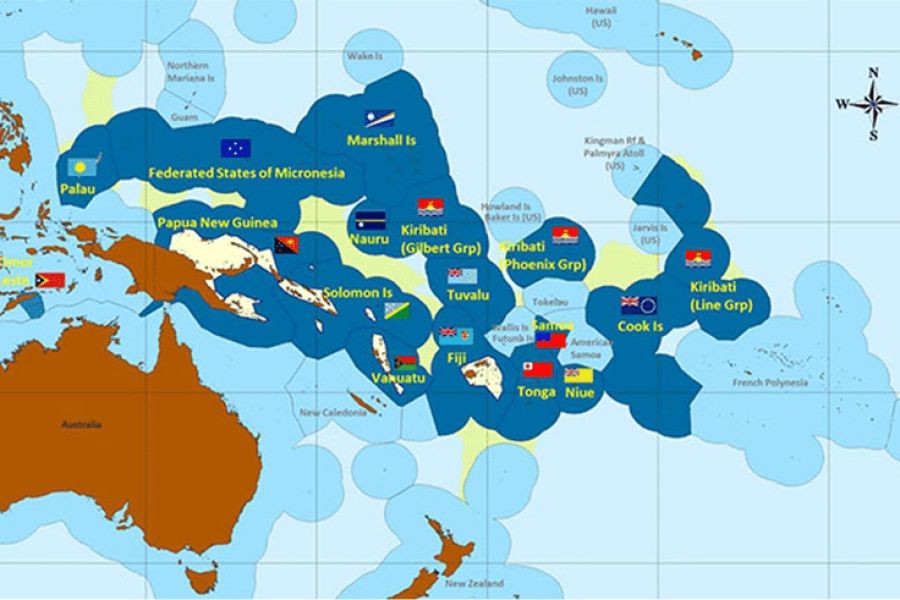Did you know that New Zealand's economic relationship with China is both a boon and a burden? As the world's second-largest economy, China plays a pivotal role in New Zealand's trade, but the deepening ties have raised concerns about sovereignty and economic independence. This article delves into the complexities of this relationship, examining whether New Zealand's economic dependence on China poses a risk to its sovereignty. Through a comparative analysis, real-world case studies, and expert insights, we aim to provide a comprehensive view of this pressing issue. What's your take? Share your insights below!
The Economic Ties That Bind: New Zealand and China
New Zealand's economic relationship with China has grown significantly over the past two decades. As of 2023, China is New Zealand's largest trading partner, accounting for over 28% of its exports, according to Stats NZ. This relationship has been particularly beneficial for sectors like agriculture, with dairy and meat exports playing a crucial role in bolstering New Zealand's economy. However, reliance on a single market can be a double-edged sword, especially when geopolitical tensions rise.
The Benefits of Trade with China
- Market Access: China's vast population offers a significant market for New Zealand's goods, especially in the agricultural sector.
- Economic Growth: The trade relationship has contributed to economic growth, with exports to China generating billions in revenue annually.
- Job Creation: The export sector supports thousands of jobs in New Zealand, particularly in rural areas.
Potential Risks and Challenges
- Economic Dependence: Over-reliance on one market can make New Zealand vulnerable to economic shocks if China's economy slows down.
- Political Leverage: China's economic influence could translate into political leverage, affecting New Zealand's foreign policy decisions.
- Supply Chain Vulnerabilities: Any disruptions in trade with China could severely impact New Zealand's supply chains.
Case Study: The Impact of the China-New Zealand Free Trade Agreement
The China-New Zealand Free Trade Agreement (FTA), signed in 2008, marked a significant milestone in bilateral relations. It was the first FTA China signed with a developed country, and it opened new avenues for trade and investment.
Problem:
Prior to the FTA, New Zealand exporters faced high tariffs, making it difficult to compete in the Chinese market. The lack of access to this booming market was a significant barrier to growth.
Action:
The FTA eliminated tariffs on 96% of New Zealand's exports to China, providing a competitive edge to Kiwi products. Businesses leveraged this advantage to expand their market presence.
Result:
- Export Growth: Exports to China grew by over 150% in the first five years following the FTA.
- Economic Impact: The agreement contributed to a GDP growth of 0.5% annually, according to the Ministry of Business, Innovation, and Employment (MBIE).
- Job Creation: The agricultural sector saw a surge in job creation, particularly in dairy and meat processing industries.
Takeaway:
The China-New Zealand FTA highlights the benefits of strategic trade agreements. However, it also underscores the importance of diversification to mitigate risks associated with economic dependence. New Zealand businesses should explore alternative markets to ensure long-term sustainability.
Balanced Contrasting Viewpoints
Is New Zealand's economic dependence on China a strategic advantage or a looming threat? Let's explore both sides of the debate.
Advocate Perspective
Proponents argue that the relationship with China has been overwhelmingly positive. The economic growth, job creation, and increased market access are undeniable benefits. The FTA is often cited as a model for successful trade agreements, showcasing how strategic partnerships can drive economic prosperity.
Critic Perspective
Critics, however, warn that the risks of over-dependence are too significant to ignore. They point to geopolitical tensions and the potential for economic coercion as major concerns. Additionally, the lack of market diversification leaves New Zealand vulnerable to economic shocks.
Middle Ground
A balanced approach would involve strengthening ties with China while actively seeking new trade partners. Diversifying markets can reduce dependency and enhance economic resilience. By investing in innovation and exploring opportunities in emerging markets, New Zealand can mitigate risks while continuing to benefit from its relationship with China.
Common Myths & Mistakes
Let's debunk some common myths about New Zealand's economic relationship with China:
- Myth: "New Zealand has complete control over its trade policies." Reality: While New Zealand formulates its trade policies, economic dependence on China means that external factors can heavily influence decisions.
- Myth: "China is the only viable market for New Zealand's exports." Reality: Emerging markets in Southeast Asia and Latin America offer significant opportunities for diversification.
- Myth: "Economic dependency is purely negative." Reality: Dependency can drive economic growth, but it requires careful management to avoid potential pitfalls.
Conclusion
New Zealand's economic relationship with China is a complex interplay of benefits and risks. While trade with China has brought prosperity, the associated risks cannot be ignored. Diversification and strategic partnerships are key to ensuring economic resilience and sovereignty. As New Zealand navigates this delicate balance, businesses must stay informed and adapt to changing global dynamics.
What are your thoughts on New Zealand's economic ties with China? Are you concerned about the potential risks, or do you see it as a strategic advantage? Share your insights in the comments below!
People Also Ask (FAQ)
- How does New Zealand's trade with China impact its economy? New Zealand's trade with China boosts economic growth, accounting for over 28% of exports. However, economic dependence poses risks if China's economy slows.
- What are the biggest misconceptions about New Zealand's trade with China? A common myth is that China is the only viable market for New Zealand's exports. However, emerging markets in Southeast Asia and Latin America offer diversification opportunities.
- What strategies can New Zealand businesses use to reduce dependency on China? Diversification into new markets, investment in innovation, and forming strategic partnerships are key strategies to reduce dependency on China.
Related Search Queries
- New Zealand China trade relationship
- Economic dependence on China risks
- China New Zealand FTA impact
- Market diversification strategies New Zealand
- New Zealand export markets
- China's influence on New Zealand economy
- New Zealand trade policies
- Pros and cons of trading with China
- New Zealand economic sovereignty
- Geopolitical tensions New Zealand China
Stay informed and make strategic decisions to navigate the complexities of global trade. For more insights, subscribe to our newsletter and be part of the conversation on New Zealand's economic future!

































shonamast0300
9 months ago